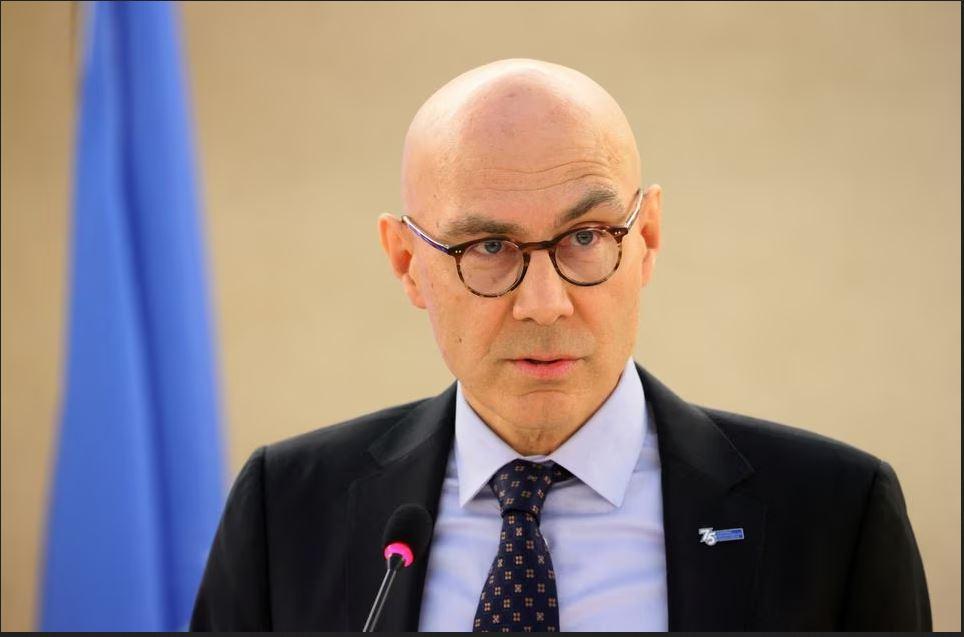KABUL (Pajhwok): United Nations human rights chief Volker Türk says arbitrary arrests and detentions of Afghan refugees are contrary to Pakistan’s obligations under international law.
Türk said he was alarmed by reports that the arbitrary expulsion of Afghan refugees from Pakistan had been accompanied by abuse, including ill-treatment, detention, destruction of property and personal belongings and extortion.
Pakistan ordered undocumented foreigners, including the Afghan refugees, to leave the country by November 1.
Between 15 September and 11 November, over 327,000 people have arrived in Afghanistan from Pakistan, many compelled to leave out of fear of arrest, the UN official said in a statement.
“These new developments are at variance with Pakistan’s decades-long tradition of hosting, generously, Afghan refugees in vast numbers,” Türk commented.
The UN Human Rights Office has received first-hand accounts from the returnees, who allege they were subjected to arbitrary treatment or abuse by Pakistan authorities.
One person said: “The local police conducted a night raid on our home. They confiscated cash, jewellery, goats, sheep and other items from our home and took them.
‘They gave us just a few hours to collect the remaining stuff and leave the home by that day at dawn. As we were leaving, a bulldozer began to destroy our home. We felt very helpless and left the village with eyes full of tears.”
Türk noted:“Many Afghans are arriving with very few financial resources, having been forced to leave their homes and jobs, in addition to being forced to pay bribes or having their possessions seized,
“In the current context of Afghanistan, this is exacerbating an already precarious humanitarian situation.”
In some instances, reported to UN Human Rights, Afghans have been arbitrarily arrested and detained in Pakistan, with some alleging ill-treatment.
“Arbitrary arrests and detentions are contrary to Pakistan’s obligations under international law,” Türk added.
He insisted: “The right to liberty of a person is a fundamental right guaranteed to everyone without discrimination, including all migrants, irrespective of status.”
Immigration detention should be a last resort, and not used to compel return, and should be avoided completely in the case of children and other vulnerable groups.”
He explained: “Women and girls arriving in Afghanistan are particularly vulnerable. The de facto authorities’ policies and edicts mean that they will be prevented from continuing their education beyond grade six, from working in most sectors, from accessing parks and other public spaces, and will face other broad restrictions on their participation in daily and public life.
“Pakistan must ensure protection for individuals who may officials and security personnel, ethnic and religious minorities, human rights defenders and civil society activists face persecution, torture, ill-treatment or other irreparable harm in Afghanistan, in accordance with the principle of non-refoulement,” Türk said.
“This includes Afghan women and girls, former government and media workers.
“The de facto authorities, as the duty bearers of Afghanistan’s international human rights obligations, are obliged to ensure that such individuals are not targeted in Afghanistan after their arrival.”
The UN high commissioner for human rights renewed his appeal to the government of Pakistan to suspend the Afghan return programme until individual assessment procedures and other safeguards required by international law are in place, and to investigate complaints of abuse by law enforcement officers.
sa/mud
Views: 102
